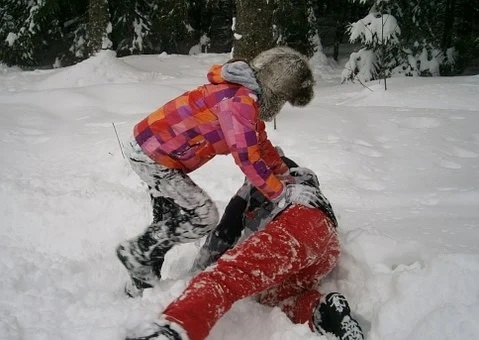Bad or Good Friends?
April 23rd, 2021
1167 Views

As a parent, you are unlikely to like all your child’s friends. The bottom line is usually that you do not think that they are a good influence on your child and you may not like the way they are disciplined, their behaviour, or the way they speak to others. How do you navigate such a difficult situation?
It is important that you do get to know your child’s friends. It is good to be interested in them and to encourage your child to make friends and to tell them you feel that this is important and well worth the effort. At the same time, you need to understand and respect your child’s thoughts. Some children love to have loads of friends, others prefer to have just a few close friends. Some children make friends quickly and easily and others take much longer to build trust in their new friend. Be supportive and recognise your child’s needs and help them to develop friendships by giving them time and the opportunity to invite their friends home.
Friendship is a very special gift that often lasts a lifetime. Many of us are still in contact with friends from our school days. There will be highs and lows in your child’s various friendships and they will need lots of support- especially when things are not going well. Far better to help guide your child in their friendships rather than try and control them as this will be detrimental to your child’s social life and also your relationship with them. What do you do if you don’t like your child’s friends?
It is important that you do get to know your child’s friends. It is good to be interested in them and to encourage your child to make friends and to tell them you feel that this is important and well worth the effort. At the same time, you need to understand and respect your child’s thoughts. Some children love to have loads of friends, others prefer to have just a few close friends. Some children make friends quickly and easily and others take much longer to build trust in their new friend. Be supportive and recognise your child’s needs and help them to develop friendships by giving them time and the opportunity to invite their friends home.
Friendship is a very special gift that often lasts a lifetime. Many of us are still in contact with friends from our school days. There will be highs and lows in your child’s various friendships and they will need lots of support- especially when things are not going well. Far better to help guide your child in their friendships rather than try and control them as this will be detrimental to your child’s social life and also your relationship with them. What do you do if you don’t like your child’s friends?

Never mention how you feel
It is very unlikely that your child will stop being friends with someone purely because you have said that you do not like them. In fact, expressing your thoughts will make your child like them even more! It makes things difficult for your child who will feel that they have to keep their friend away from you and not even mention their name in conversation. In complete contrast, if you think a new friend is very special, do not over enthuse about them as your child could find this off-putting too.Think how friendships can change
Qualities that you see in your child’s friend may well change and mellow – bossy toddlers often turn into engaging and impassioned children, teenagers become really pleasant adults . Both your child and their friends will change dramatically over the coming years and it is likely that they will not remain friends or their friends could end up at different school or living elsewhere. Your method of discipline is not the only one and a different approach can be just as successful. Just keep quiet and monitor the friendship from the sidelines!
Get to know them better
Are you sure that the reason that you don’t like the child is based on strong facts? Are you sure that you are not being unfair in your thoughts, after all, they and your child interact well together. Why not get to know them better? Join in games with them and your child, share a picnic and try and build a rapport with them. This works really well with all ages, including teenagers. Getting to know your child’s friends will help you to realise that you are perhaps being irrational after all.Be a wary parent
If you find that you have spent time getting to know your child’s friend and your concerns have been proven, it is best it is best to gently explain your concerns to your child – with younger children this can include bullying or bossing. Do not try and control them in any decisions, but ‘flag up’ your concerns so that they are aware of the. Try and help build up their confidence and establish other friendships. Let them know that if they have any concerns, that you are always happy to discuss it through with them and you are always there for them…. supporting them quietly from the sidelines....Chrissie x

